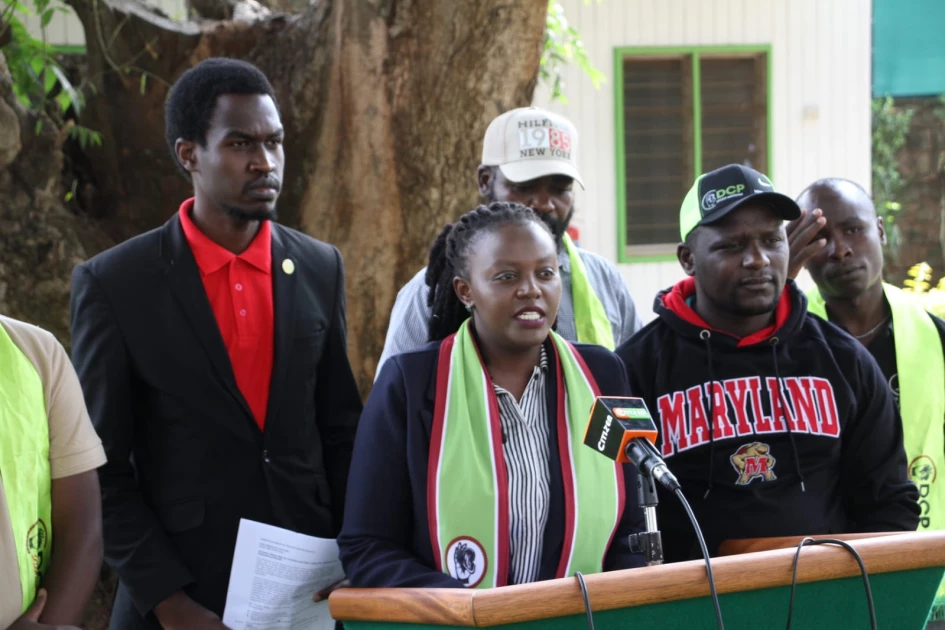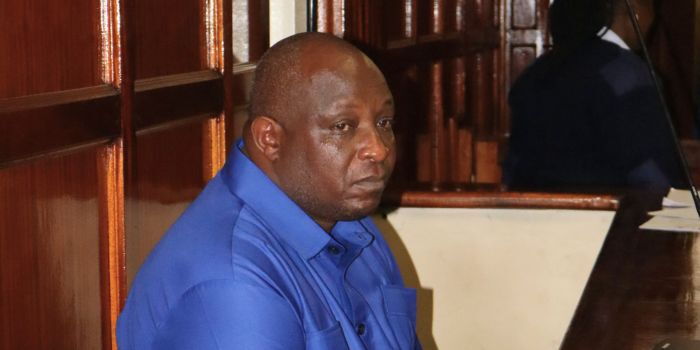Abductions and Arrests! Kenya Government's Fear and Hate of X Users Makes No Sense
It is no surprise to find a random person across the globe who hates their ex; this is the norm. In the East African nation of Kenya, there appears to be an overwhelming hatred towards X, which is not a former partner but rather the social media platform formerly known as Twitter. This peculiar, obsessive hate is by the Government of Kenya (GoK) and its affiliated bodies.
Today, Kenyans are still in shock and are mourning the death of a teacher, Albert Ojwang. The gentleman is reported to have died while in police custody. Inspector General of Police Douglas Kanja, speaking under oath to the Senate, alleged that Albert Ojwang’s arrest stemmed from a defamatory post on X, which he claimed violated the Computer Misuse and Cybercrimes Act.
This arrest that ended up being fatal is just one of the many that have occurred targeting active social media users. High-ranking government officials often use the Computer Misuse and Cybercrimes Act and the National Cohesion and Integration Commission (NCIC) Act—which prohibit hate speech, spreading false information, and incitement to violence—to justify these arrests.
One part of the law that authorities rely on is Section 23 of the Computer Misuse and Cybercrime Act (CMCA), 2018, which states that,
“A person who knowingly publishes information that is false in print, broadcast, data or over a computer system, that is calculated or results in panic, chaos, or violence among citizens of the Republic, or which is likely to discredit the reputation of a person commits an offence and shall on conviction, be liable to a fine not exceeding five million shillings or to imprisonment for a term not exceeding ten years, or to both.”
Read: ODPP Requests CA Assistance in Extracting Protesters’ Social Media and Phone Data
Kenyan authorities have a long history of suppressing online dissent, a practice that predates the enactment of the Computer Misuse and Cybercrimes Act (CMCA) in 2018.
The disappearance of journalist-blogger Bogonko Bosire in September 2013 remains a mystery; he was last active on X and his blog and has never been located. His “Jackal News” blog, notorious for its coverage of corruption investigations and salacious scandals, frequently landed him in trouble with politicians.
Cyprian Nyakundi and Robert Alai, currently the Kileleshwa ward MCA, have also faced legal issues with authorities because of their online posts. While the two post across multiple platforms and manage publication sites, it’s often their posts on X that land them in trouble.
Read: Popular Kenyan Blogger Nyakundi Gets Suspended Again By Twitter
Almost a year ago, the roads and major streets across Kenya were filled with citizens unhappy with a finance bill. The protest led to a government response that singled out social media. The brunt of unlawful abductions since then, often for their online posts, has been especially borne by X users.
In August of last year, X user Maverick Aoko faced charges in Milimani Court. She was accused of spreading false information via her X account. During her arrest, her phones and laptops were confiscated for forensic examination. It’s unclear who was responsible, but some of Aoko’s posts, shared during the period on her X account, were deleted.
Her arrest and detention at the time were part of a series of abductions that particularly targeted X users. Cartoonist Gideon Kibet, techie Johnfrank Ngemi, influencer Billy Simani and others were all arrested and detained for varying durations.
To date, no Kenyan authority has concretely stated which security agency was responsible for the abductions. However, William Ruto, holder of the highest office in the land, insinuated the government’s hand in the abductions. At a joint press conference with Finnish President Alexander Stubb, Ruto claimed that everyone previously reported missing had been reunited with their families.
“All the people who disappeared or were abducted have been brought back to their homes. I have given clarity that nothing of that nature will happen again.”
A sample analysis of social media arrests demonstrates that X accounts for approximately 74% of cases, highlighting a concentrated effort by the government to scrutinise activity on this platform.

One has to acknowledge that the platform, especially at the time of the finance bill protests, led a lot of discussions on the matter. For instance, on Monday, June 26, a four-hour virtual meeting on X titled “Why is Ruto Lying?” drew an initial 130,000 live listeners, peaking at an unprecedented 138,000 after a brief interruption.
Read: Kenyan Twitter Space Shatters Records
This digital assembly, hosted by opponents of a contentious finance bill, allowed citizens to express concerns following President William Ruto’s press conference, including allegations of internet censorship by Safaricom.
Kenyan authorities must have felt the heat because soon after, William Ruto organised his own X space. Further, despite arresting X users more than other social media users, government officials and state official accounts often prioritise X to disseminate information.
The Principal Secretary for Internal Security and National Administration, Dr. Raymond Omollo @ray_omollo held a consultative meeting with stakeholders in the telecommunication and social media sectors with a view to enhancing cyber security as well as responsible use of various… pic.twitter.com/I3Yr3oDaRt
— Ministry of Interior | Kenya (@InteriorKE) January 16, 2025
Some like Cabinet Secretary Kipchumba Murkomen and presidential advisor Moses Kuria, have used the platform to attack prominent journalists and media houses.
The special fear for X cannot be illustrated better than by the actions of Uhuru Kenyatta. Kenya’s fourth president, who initially campaigned as a digital president, shut down his X account in March of 2019. At the time, he was the most followed African leader on the platform with 3.62 million followers.
However, data shows X has never been a popular social media platform in Kenya. With over 68 million phones in use today, Kenya’s digital landscape is significantly shaped by smartphones, which, according to the Communications Authority of Kenya (CA), account for 55% of all active devices.

This points to a largely digitally savvy nation that has access to social media platforms. However, most of the social media users are actually not on X. In Kenya, Facebook and WhatsApp are the leading social media platforms, with TikTok and YouTube ranking third and fourth, respectively.

Based on Communications Authority data, there is widespread adoption of Facebook, WhatsApp and TikTok. The platforms have a significant influence on Kenya’s digital landscape. The much-maligned X, even at its peak, commands just about 12% of Kenyan social media users.
Beyond numbers, traction is also another way to look at it. X often has a lower engagement rate compared to other platforms like Instagram or TikTok. It also doesn’t have the community sense that is affiliated with Facebook.
An engagement rate quantifies the degree to which individuals interact with your content relative to its reach. This metric moves beyond simple visibility, highlighting the crucial element of connection and active participation from your audience.
X’s engagement rate is lower than Facebook’s and TikTok’s, which already have a bigger audience in Kenya. In addition, according to Buffer’s analysis, the engagement rate on X has been declining.

Beyond data, real-life experiences show that TikTok is better for mobilisation and engagement. During a protest in 2023, Ferdinand Omondi, who was then working for the BBC, decided to go live on TikTok. His experience was eye-opening.
“I went live on TikTok for the first time. In 30 minutes, I gained 8,000 new followers. To put this in perspective, I gained less than 500 followers on Instagram the whole of 2022,” he posted on his X account.
Yesterday during #Maandamano, I went live on Tik Tok for the first time.
— FERDINAND OMONDI (@FerdyOmondi) March 21, 2023
In 30 minutes, I gained 8,000 new followers.
To put this in perspective, I gained less than 500 followers on Instagram the whole of 2022. pic.twitter.com/CwbpzCYbDi
Ferdinand’s 30-minute non-stop live stream was a huge success. He started with just three viewers, but by the time he had to end the broadcast, over 4,000 people were actively watching, showering him with virtual gifts like flowers and diamonds – a true sign of engagement and appreciation.
TikTok proved its mobilisation ability after the death of Brian Chira. Chira had amassed about 400,000 users on the platform. After his untimely death, Kenyans on TikTok swiftly raised over KES 7.7 million, and thousands of them thronged the small village of Gitegi for his burial.
Most recently, after the mysterious death of Albert Ojwang, TikTok users on the platform mobilised each other to visit the home of the deceased during Father’s Day.
The protests in Kenya may have contributed further to the growth of TikTok. Last year, immediately after the June protests, social media usage in the country surged. However, the growth was not led by X; it was TikTok (5.1%), followed by Facebook (2.5%). Nonetheless, a majority of abduction cases reported through the end of 2024 were found to be connected to content shared on X.

TikTok’s influence can also be seen from a business perspective. With the growth of the platform, major telecommunications companies like Airtel Kenya, Telkom and Safaricom have launched a “TikTok” data bundle. There has never really been a data bundle tailored just for X.
Tanzania stands out in Africa for its intense scrutiny of X, having shut down the platform twice in the past eight months. In the Democratic Republic of Congo, the government didn’t single out X but restricted access to it alongside Facebook and Twitter. Earlier this year, the South Sudanese government specifically blocked TikTok and Facebook.
Beyond Africa, governments have also moved to control social media. Following protests that led to the overthrow of its government last year, Bangladesh blocked Facebook. In the West, particularly the US, there’s a strong concern about TikTok, with the US government pushing for its acquisition by an American entity.
The Kenyan government isn’t purely focusing on X; a recent transparency report by Meta shows that in 2024, the requests for user data from Kenya increased.

A look at the report from Google shows there has also been an increase in user information requests since the Ruto-led government took over.

It’s worth noting that TikTok is mandated to submit a compliance report to the Kenyan government. This report largely centres on the morality of content on the platform rather than government critique.
Read: No Legal Removal Requests from Africa Governments to Takedown Content – Reddit Report
X’s transparency report fails to shed light on the government’s apparent obsession with targeting X users for arrests, remaining an unhelpful and opaque document. Its latest data on government requests for account information has no mention of Kenya and has the entirety of Africa listed under Others.

The Kenyan government’s disproportionate attention to X, considering its low user numbers, content visibility, and engagement within the country, could be a calculated effort to manipulate its image on the international stage. Because locally, it makes little sense.
X is a place for all different types of communities to share thoughts, videos, imagery and news in real-time. This platform is often used by key policy makers and world leaders, making it the best place to grab their attention. Kenya has done this well. William Ruto garnered an unprecedented 40,000+ public nominations for the 2024 Organised Crime and Corruption Reporting Project (OCCRP) awards, the most in the awards’ history, marking a dubious distinction for his administration
Given the presence of influential world leaders like Barack Obama, who has Kenyan roots, along with activists, global organisations and stars active on X, the government appears more focused on suppressing information that crosses Kenyan borders than on content shared purely domestically.










